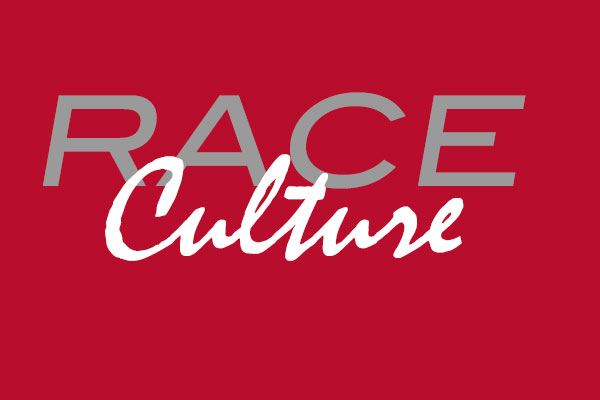A couple discussions about race and parenting have been making the rounds of the Internet this week. The first comes from Vijay Pendakur, Director of Multicultural Student Success at DePaul University. In his Open Letter to Asian American Parents, Pendakur chides Asian American parents for not raising their kids with a sense of pan-Asian identity and social justice:
“Lovely parentals, I’m just going to come out and say it…why aren’t you teaching your children to identify as Asian American? Why aren’t you packing the bambinos off to college with a racial identity toolkit to accompany that new winter coat? Oh, is it because you yourselves don’t identify as Asian American? Perhaps you’ve misplaced your racial identity toolkit along with last year’s Halloween decorations?”
Silly, Vijay. Those Asian parents don’t put up Halloween decorations!
Then on the other hand, at NPR, the latest installment of Michele Norris’s Race Card Project focuses on mixed-race peoples who identify primarily with their non-white heritage. Wilma Stordahl, who is Norwegian and has young adult sons who are black and white, was interviewed in the program. Here’s a little of what Stordahl says about her sons’ racial identities:
“In my 20s, I wanted to call them mixed-race. I wanted to say that they were some other thing, some other category than what was listed on all the forms that you fill out,” Stordahl explains. “But I was repeatedly corrected, and actually, I was most frequently corrected by African Americans.”
They would tell her, “‘No, honey — your son is black,’ ” she says. “Like, just get used to it, because that’s how the world’s gonna see them.”
The article explains that Stordahl gave her sons her Norwegian last name, because she wanted them to have a connection to her heritage. And she is pleased that her older son Kevin is taking courses in Scandinavian studies and Norwegian language in college.
Both of these articles touch upon something that I’ve been thinking about lately: raising racially-aware kids, versus raising culturally aware kids.
Pendakur’s screed acknowledges that many Asian parents place a high priority on passing their culture down to their kids:
“We love our languages, our food, our festivals, our clothing, our religious celebrations, and our in-group humor! All that ethnic stuff is just swell, hang on to it!”
Then he drops the bomb:
“But, that stuff isn’t race.”
I agree that teaching kids about culture is not the same as giving them an awareness about race. That’s why these two stories in particular have stuck with me. Race and culture are not interchangeable. Neither are they two completely separate issues. They’re more like two circles that intersect in a Venn diagram. Stordahl seems to be longing for her sons to know their Norwegian heritage, which it seems at least one son is doing. Her black friends seem to warning her that she needs to equip her sons with the understanding that they will be perceived in the context of black people in America.
Asian parents, especially first generation immigrants, do a pretty good job of teaching their kids about culture: language, foods, manners, how to relate to people according to social mores. And for the most part, teaching kids about culture and tradition is celebrated, even by mainstream white Americans. After all, who doesn’t want to eat dumplings or watch a lion dance?
But as a practical matter, I think it’s also important to teach our kids an awareness of race, which is a little fuzzier and at the same time more controversial. Even if you don’t speak another language, practice an Eastern religion or eat dim sum, you will not stop being Asian. Just as other recent headlines have shown us, our children are growing up in a world where mega-church pastors shrug off complaints about his casual remarks praising the Red Guard and viral videos aimed at tweens portray a mashup of stereotypes about Chinese food.
Teaching about race includes the history of Asians in America, including uglier aspects such as the Chinese Exclusion Act, Japanese internment, and the Immigration Act of 1965. It involves talking to kids about the when they experience racism, such as another child making slanty eyes or “ching chong” sounds at them. For multiracial children, we should talk to them about how they might choose to identify – or not.
What do you think? Do you teach your kids about culture or race? Both? Neither?


we’ve had discussions about this between me and my husband (i’m asian, he’s white), and we both agreed that we would try to put more of an emphasis on teaching “asian stuff” at home because our kids will have plenty of “white american” lessons in culture and race just by living in the states. (hopefully, the race issue won’t be much of an issue by the time they’re older.) we already try to keep up with exposing language, food, and traditions, but when they’re older we’ll talk more about what they’ll face in society from a racial standpoint.
This is an interesting post. It’s true race and culture are different yet intersect (like a Venn diagram which is a perfect visual analogy). The DePaul University letter comes off as a bit condescending and basically lumps all Asian parents together as being at fault which is a bit overreaching as I’m sure not every parent falls into this category. I think it’s important to teach both aspects, race and culture to our kids and it’s something I plan to do as I raise my little one.
I have a feeling the author of this letter is still fairly young, and a recent graduate of an ethnic studies program. It definitely feels like his advice is aimed at a first generation “Tiger Parent”, and I do agree that for that type of parent, this may be a message they need to hear. But yeah, I know that you and many other parents are already doing this kind of awareness, and it would have been great for him to acknowledge that, too.
Grace – I am happy to find your blog and interested in learning from your perspective. My husband and I are the Caucasian parents of two adopted Chinese daughters. We do talk about Chinese culture and race, but it is much easier to focus on the culture part. Your insights are especially helpful for those of us who need to be able to help our children navigate a world we can never fully experience. Thank you for tackling these issues.
So nice to hear from you, Laura! And I’m glad you are thinking about awareness of race as you raise your daughters. Even though you won’t personally experience what they will as Asian women, it’s good that you are seeking out ways to teach them in this area ;)
Testing this follow up comment feature.